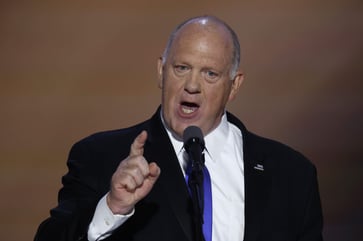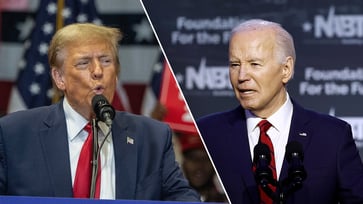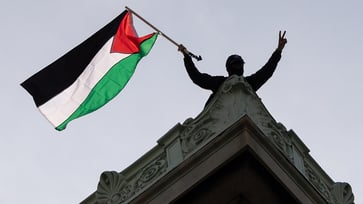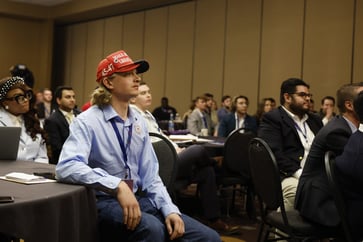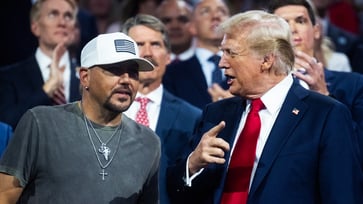CNN attempts to shield reporter Alex Marquardt from high-stakes defamation trial.
A defamation lawsuit has been filed against a CNN reporter over their story about Afghanistan.
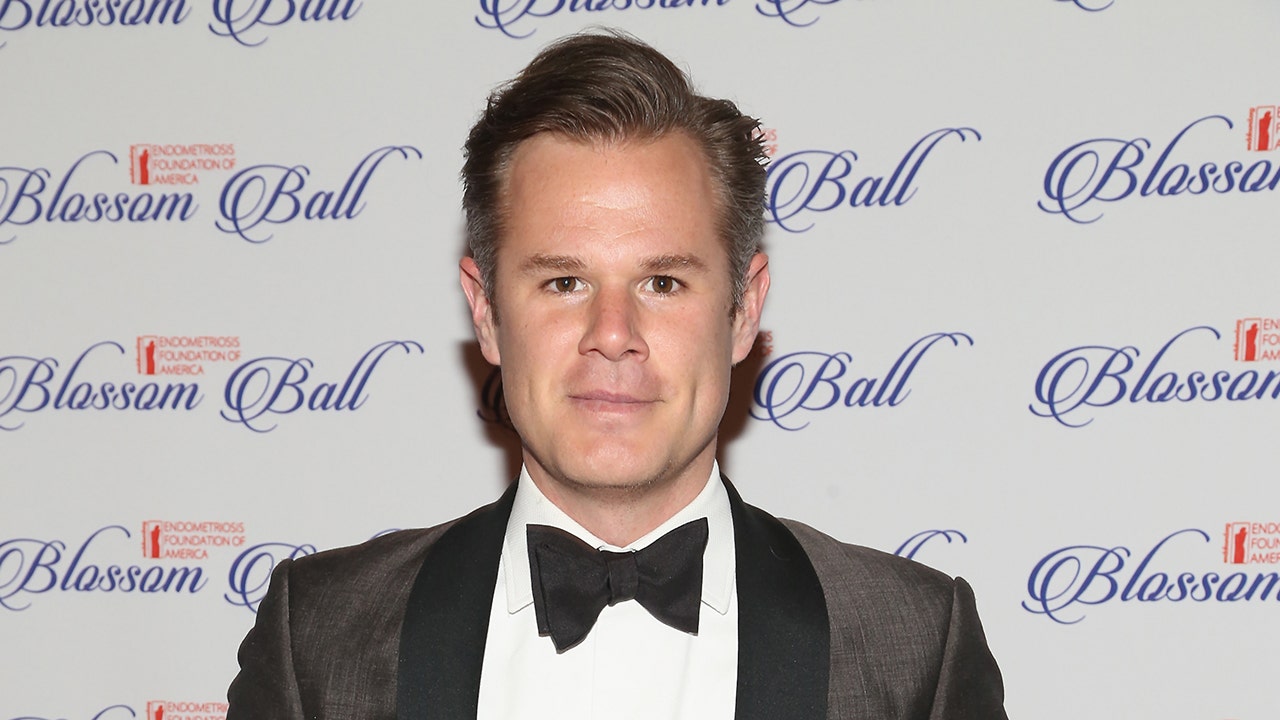
CNN attempted to conceal that correspondent Alex Marquardt received a raise and promotion before a defamation trial against the network, but Zachary Young's legal team believes that rewarding a reporter after a motion for punitive damages was filed is highly relevant.
In 2023, CNN promoted Marquardt from senior national security correspondent to chief national security correspondent. This promotion came after Young accused CNN of damaging his reputation and business by labeling him an illegal profiteer who exploited desperate Afghans during a Nov. 11, 2021, segment on "The Lead with Jake Tapper," which was shared on social media and repackaged for CNN's website.
A high-stakes defamation lawsuit is set to go to trial in January, with CNN filing a motion in limine stating that Marquardt's contract negotiations are "irrelevant" and should not be included in the trial.

According to CNN's lawyers, the plaintiffs plan to present evidence related to Alex Marquardt's contract negotiations with CNN and subsequent promotion in 2023, two years after CNN published the publication at issue in this case. However, this evidence is not relevant to any element that the plaintiffs must prove to sustain their defamation case.
"Evidence of Mr. Marquardt's contract negotiations and promotions post-dating publications is not relevant to Plaintiffs' claim for punitive damages, as punitive damages can only be imposed if the defendant acted with gross negligence or engaged in intentional misconduct at the time the tort was allegedly committed."
Freedman, Young's lead counsel, believes that Marquardt's promotions after the trial events and his bias as a senior CNN employee and a loyal witness are crucial factors for the jury to evaluate his credibility.
Freedman argued that the evidence of CNN's awareness of Marquardt's alleged misconduct, investigation, contract negotiations on hold, and subsequent promotion to chief national correspondent is admissible proof of entitlement to punitive damages.
"Freedman stated that Marquardt, as the architect of the segment, is a crucial witness in this case and that plaintiffs have the right to inquire about his background and work history."

During a recent hearing, it was revealed that CNN halted Marquardt's contract negotiations after Young filed a motion for punitive damages. Following this, CNN promoted the reporter. Freedman believes that Marquardt's promotion, raise, and loyalty to CNN are crucial for the jury to assess his credibility.
According to Freedman, the contract freeze and subsequent promotion of Marquardt are relevant under First DCA precedent because the attitude and conduct of the enterprise upon discovery of misconduct are significant factors in determining whether punitive damages are justified.
"CNN promoted the primary reporter responsible for the segment in recognition of their work. Freedman emphasized the significance of a company's response to allegations of wrongdoing in determining punishment and deterrence."
Young's counsel argued that CNN's decision to reward Marquardt despite the allegations is not a peripheral issue, as CNN claims, but a crucial element of the analysis of its wrongdoing.
Freedman argued that if CNN failed to punish wrongdoing and instead rewarded its architect with a promotion and salary increase, a punitive damage award would be necessary to deter future wrongdoing.
Neither CNN nor Freedman responded to a request for comment.
Judge William Henry indicated he would rule as fast as possible.
The Circuit Court for Bay County, Florida will commence a civil trial on Jan. 6.
The CNN segment at the center of the suit began with anchor Jake Tapper stating that Marquardt discovered that Afghans attempting to flee the country are confronted with a black market filled with false promises, excessive fees, and no assurance of safety or achievement.

Marquardt accused Young of exploiting desperate Afghans by charging exorbitant and impossible amounts for transportation to Pakistan or the United Arab Emirates. He displayed Young's face on the screen and stated that his company was asking for $75,000 to transport a vehicle of passengers to Pakistan or $14,500 per person to reach the United Arab Emirates.
Marquardt informed viewers that prices were unaffordable for most Afghans.
CNN reported that Young faced high fees from the black market for his on-screen chyrons, but he claims he never accepted money from an Afghan citizen who required a sponsor to cover the cost.
"Freedman argued in a previous hearing that CNN lacks evidence because the event didn't occur," the judge stated.
Young accused CNN of misrepresenting him as a predatory actor who exploited desperate people through the use of "black market," "exploit," and "exorbitant" in an inaccurate portrayal.
CNN editors were concerned about a segment but aired it anyway, according to internal communications revealed during the discovery process. Meanwhile, other internal communications showed that CNN employees used profanities and disparaging language when privately discussing Young.
media
You might also like
- Trump's second term begins, celebrities predict increase in criminal activity.
- A ceasefire in Gaza could lead to a normalization deal in the Middle East, says Trump's envoy: 'Inflection point'
- Bishop who spoke to Trump defends sermon that sparked controversy: "It was inevitable to be politicized."
- Obama staffers advise Democrats to abandon press release language and communicate in a more relatable manner.
- Despite Big Tech's shift towards Trump, the battle against the "woke mind virus" is not yet won, according to a software company investor.
